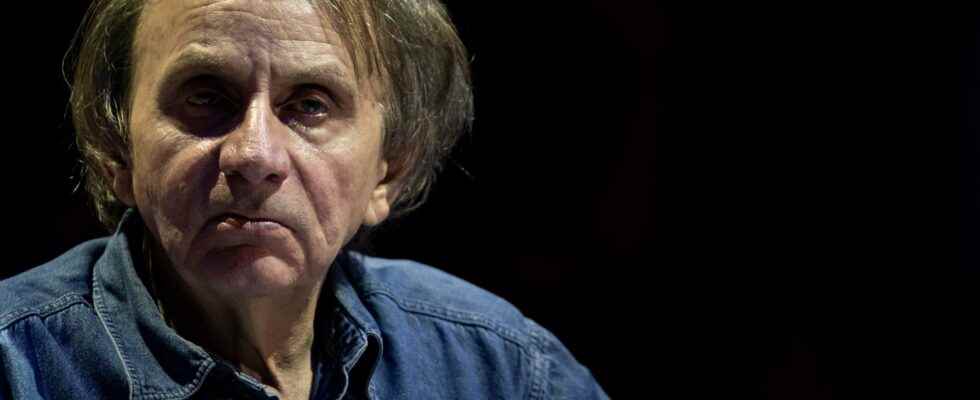“The Decline of the West?” It is this title in the form of a fake question that tops the now famous interview published in Popular Front between its founder Michel Onfray and Michel Houellebecq. The controversy has focused on the protrusions of the great writer concerning Muslims, but our two merry debaters are aiming for many other targets: NATO (from which Michel Onfray wants to leave, indeed it is really the moment); General de Gaulle (whose Houellebecq would have liked to have been shot for having dropped the harkis) and the European Union, object of detestation common to the two Michels.
One of the funniest moments in the interview concerns the possibility of a Frexit, which Onfray argues would be technically quite simple. On this subject, the philosopher quotes Jacques Sapir, an economist who seems to spend a large part of his day on Twitter relaying the elements of language from the Kremlin, and Jean-Luc Mélenchon, each of whom knows the accuracy of economic analyses. The collapse of Venezuela bears witness to this. For the duettists, the economic problems of France are linked to the Germanization of our country and the Americanization of Europe, without these notions being precisely defined. Onfray excels in his conspiratorial analysis of the European Union, built according to him by a Jean Monnet paid by the CIA with the aim of vassalizing the countries of our continent. Result ? For Houellebecq, “the French do not like Europe, but they are afraid to leave the euro simply because they lack self-confidence”.
What is certain is that the British love Europe more and more. According to a poll reported a few days ago by The Independent, two-thirds of the British questioned called for a new referendum; 54% of respondents believe that Brexit was a bad decision. Among the reasons given, many believe that Brexit has caused the country to lose influence and diminished its ability to control its borders! In other words, and as has been written many times in these columns, de jure sovereignty is not to be confused with de facto sovereignty.
They can even be contradictory, which the British discover and which completely escapes the nationalists Onfray-Houellebecq. Our British friends are also discovering that the European electricity market, which is certainly not perfect, had the merit of guaranteeing supplies and smoothing out price volatility. Ukrainians, for their part, understand that their country will be more sovereign in the European Union than outside, and stronger economically. This too escapes Houellebecq who, before the invasion, understood Putin’s “idea of rebuilding a Russia faithful to its values, an alternative to liberal Europe”.
Houellebecq hates the West
Decline of France because of Europe and, as suggested in the title of the interview, decline of the West. As the two friends note, this decline can be seen in particularly low fertility figures. For Houellebecq, Western modernity is self-destructing. The two writers are all the same seized with a flash of lucidity when they notice that Russia or China are also undergoing an accelerated demographic decline. India is taking the path. Mystery… They both forget (or ignore) the robust law of demographic transition: the fertility rate evolves inversely to per capita income. The enrichment of parents leads them to have fewer children. The education and well-being of children are preferred to quantity, a sign not of decline but of progress.
Houellebecq hates the West and thinks its values make our civilization unworthy of saving. He might be disappointed. Because the first lesson of the difficult years that we are going through is that the West is showing a capacity for resilience that astonishes all over the world. China is stuck in a health and economic impasse. Russia is sinking economically and hopefully militarily. Turkey is experiencing hyperinflation fever. Sub-Saharan Africa, after having raised hopes, is grappling with its old demons (authoritarianism, corruption, dependence on raw materials). Faced with Covid, global warming, war and the challenges of innovation, it is undoubtedly the United States and then the European Union that are doing the best today. Our liberal, democratic and progressive values are not a liability but, at least in the realm of public policy and the economy, a strength.
